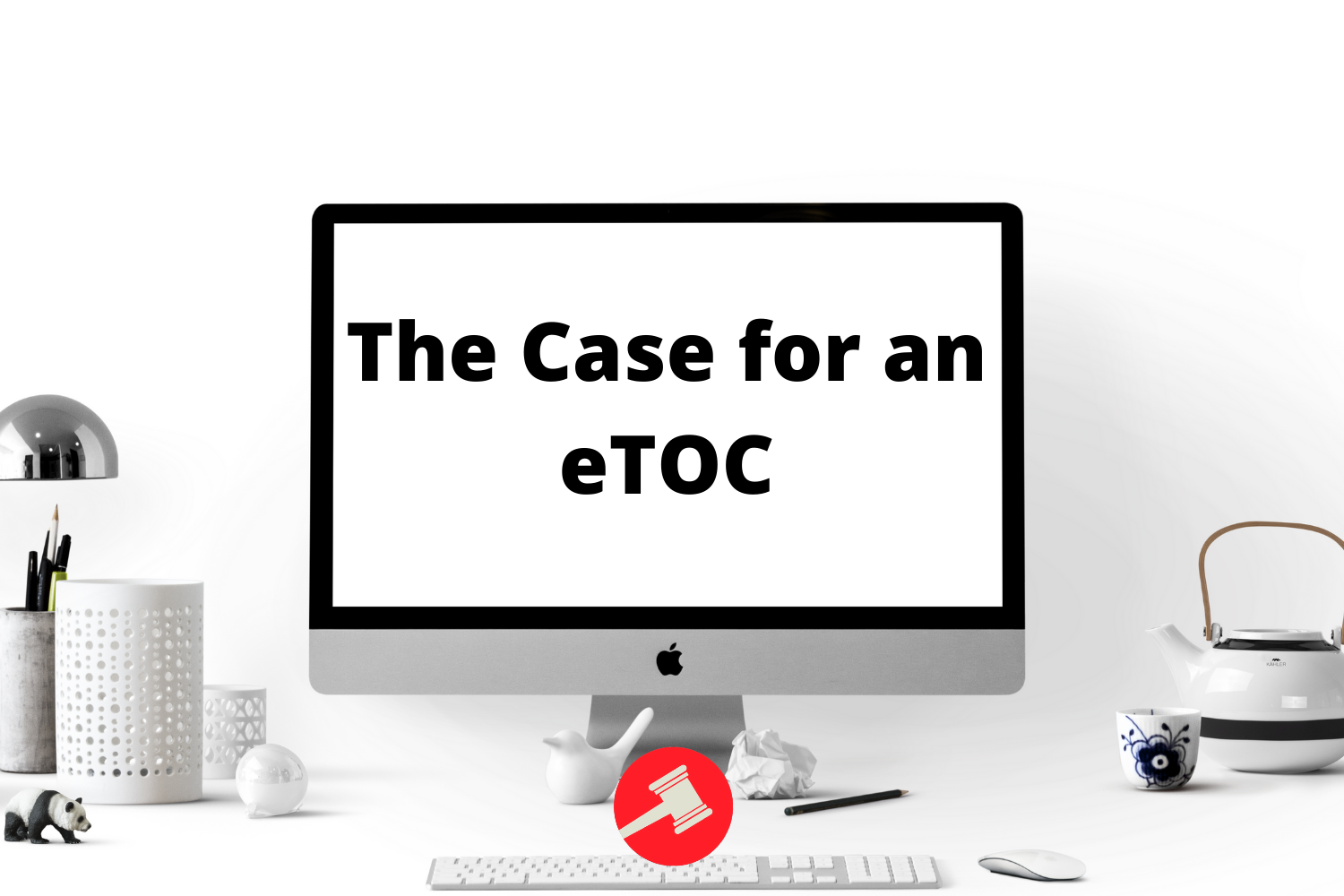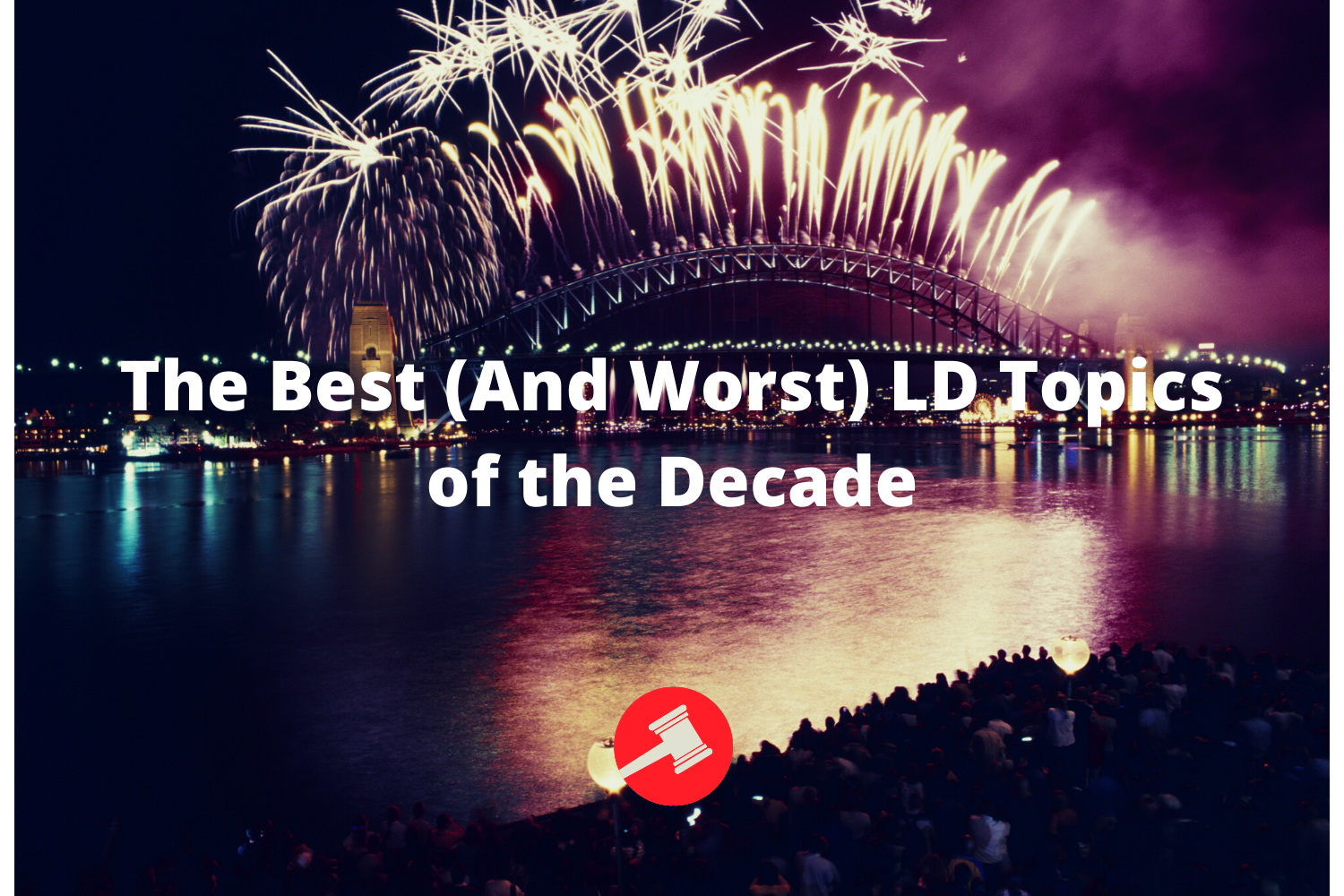Disclosure: Open Source, Full Text, and More (Kenan Anderson)
In this post, Kenan talks about the rise of full-text and open source theory, what each of their strengths is and where they're still lacking.
It’s fairly undisputed that disclosure is at an all-time high in high school LD debate, and that is a good thing! Disclosure produces better debates, better cases, levels the playing field and helps new students and teams get their bearings on the circuit. However, despite the widespread prevalence of disclosure in general, various flavors of disclosure and disclosure theory have continued to persist. These shells tend to raise issues with how someone discloses rather than whether someone discloses.
Full-Text
One of the most common arguments gaining traction is that debaters must disclose their cases full-text. This usually means that in addition to the tag and citation, the full text of the card (as opposed to the first three and last three words) must also be available. The text doesn’t need to be underlined, bolded, or highlighted though, simply present in its entirety. The arguments for this type of disclosure seem to be two-fold.
Paywalls and Accessibility
First, it helps grant access to evidence that is inaccessible due to paywalls. Many academic publishers charge incredibly high prices for access to their content and while some schools or students may be fortunate to have access to these publishers through a local university (as I did in high school), many are not. I’m very sympathetic to the premise of this argument. In fact, my senior year I wrote and experimented with a Paywall K that indicted the opponent for even reading evidence that wasn’t available free of charge. However, I question the solvency of full-text disclosure in this regard.
Often in debate, having access to the entire article is essential for both understanding a concept and being able to defend it in a round. For example, suppose a study I was interested in about the economic effects of military aid was behind a paywall, but another team had access to the article and had cut the conclusion as a card and disclosed it full-text. While being able to re-cut the full-text version of this card may be useful, I still wouldn’t have access to other information such as the methodology, abstract, or footnotes that would contextualize the study in my research. I think it’s more important for debaters to do their best to create a norm around (legally) sharing .pdfs and articles as well as helping each other gain access through other resources. (For those interested in how to obtain a pdf behind a paywall I recommend www.reddit.com/r/scholar as well as simply emailing the professor/author if possible. They’re often happy to see that people are interested in their work and can share their article with you freely.)
Evidence Ethics
The second argument I’ve heard in favor of full-text is it helps prevent evidence ethics violations. This argument holds up much better than the previous one. While many argue that this is possible with traditional, “first three last three”, disclosure I disagree. It’s much more reasonable that in the limited amount of pre-round preparation (or even pre-tournament preparation) a debater can check the full-text of cards to verify their authenticity, than it is for them to find the original article, find the portion that the card cites, and verify that against what is read in round.
Other Full-Text Interpretations
A variant of this shell, which I heard twice at the Minneapple, argued that debaters who disclosed full-text were not allowed to disclose full-text in the citations box (where traditional disclosure occurred); instead, they needed to upload a word document with the full text. The argument was that some citation boxes are so poorly formatted and contain such long cards that the case becomes impossible to read in the time-sensitive environment of pre-round prep.
While I certainly agree that some full-text disclosures are horribly formatted, this interpretation is kind of silly. First, I suspect most of the poor formatting comes from a mix of incompetence and unawareness, not malicious intent to obfuscate one’s case. Second, the notion of having to download potentially a dozen documents to see what your opponent’s previous neg strats have been is even more of a hassle than scrolling through blocks of text. Beyond that, proper use of the search function and triple-clicking to select a paragraph that isn’t indented or separated minimizes most of the harm of this shell.
Open Source
Another interpretation and disclosure practice gaining traction is the disclosure of positions open source (i.e. full-text with highlighting/underlining). Most of the points made above regarding full-text disclosure could just as easily apply to open-source disclosure. However, one unique argument I’ve seen for open disclosure is that it helps close the resource gap between teams.
This argument essentially impact turns the common open source response that “kids will just steal cards.” According to proponents of this argument, debate has so many resource inequities that give certain schools access to more coaches/prep that the only way to address this inequity is to disclose all positions open-source. While I find this argument persuasive, I do think there are some important caveats to note.
First, this (mostly) doesn’t solve one of the largest resource inequity issues; the existence of backfiles. Every open-source shell that I’ve seen to date only requires the disclosure of full positions, not blocks or 1AR answers. This means that most backfile or generic answers such as Cap Impact Turns, Impact Defense, or common K answers are not disclosed open source. This represents a much larger source of resource inequity than topic-specific prep. Every debater ostensibly is forced to prep the core issues of the topic. But only the teams or squads with additional researching or coaching capacity can afford to dedicate time to thoroughly assembling blocks to common generics. And more importantly, once a backfile is completed, it only accumulates thus furthering a team’s resource advantage and giving a massive upper hand to legacy programs. For example, this weekend at Blake, every debater will be new to the topic, and even those with several private coaches or a large team will have had a limited amount of time to research military aid. But on an issue, such as afropessimism, capitalism, or Nietzsche, a school with a long history of success and circuit competition will likely be miles ahead in the research game. While no other form of disclosure currently addresses backfile inequity either, I think it’s important to point out what issues in resource inequity remain.
Second, open source often doesn’t address inequities around debate “inside baseball” such as theory. Often theory shells read by top debaters don’t include anything beyond the interpretation, the tagline of the standards, and possible the words “Fairness” or “Education.” These debaters are simply so efficient on theory that they’re often able to (or required to) extemp the majority of their shells in round. This isn’t inherently bad, and I think any attempt to police this through some form of interpretation requiring shells to be fully-typed out be ineffective if not disastrous. But it’s again important to realize where open-source disclosure falls short, and what other steps should be taken to promote access to information or positions. I also want to stress that I think it is particularly important for us as a community to grapple with the issue of accessibility surrounding theory. Topic research, policymaking, critical literature, and philosophy can all be learned outside of debate through academic research and books. But theory is almost entirely an internal invention of LD, or “inside baseball”, and is often only able to be learned either at debate camp or through coaches with serious LD experience. That fact, combined with theory’s role as a win-or-lose issue in many rounds, makes a dangerous combination of high-stakes and inaccessibility that discourages new or local debaters from circuit competition.
A Possible Solution
As I mentioned in a previous post the website Circuit Debater was taken down earlier this year. The site focused on encouraging debaters to disclose frontlines, backfiles, and theory files (along with positions) after the season so that they could be used as a learning resource. I believe that a more developed version of a similar concept could help fill in a lot of the gaps left by current disclosure practices. Therefore, Premier is currently working on developing either a new website, forum or file-sharing medium such as Dropbox that could serve this purpose. The details aren’t concrete yet, but we hope to be able to announce as soon as we know more.


